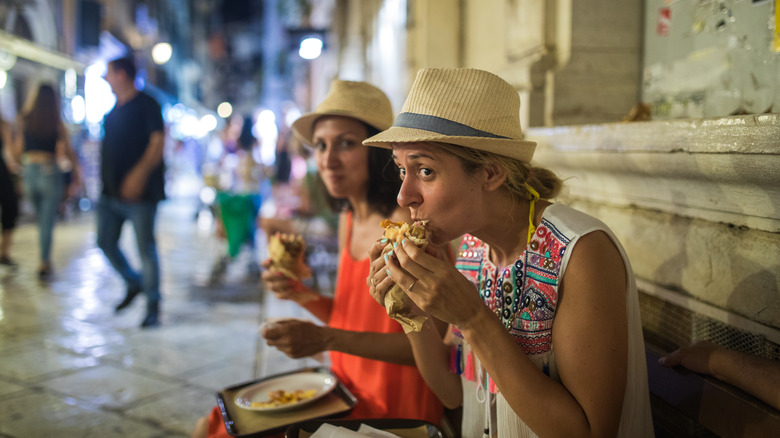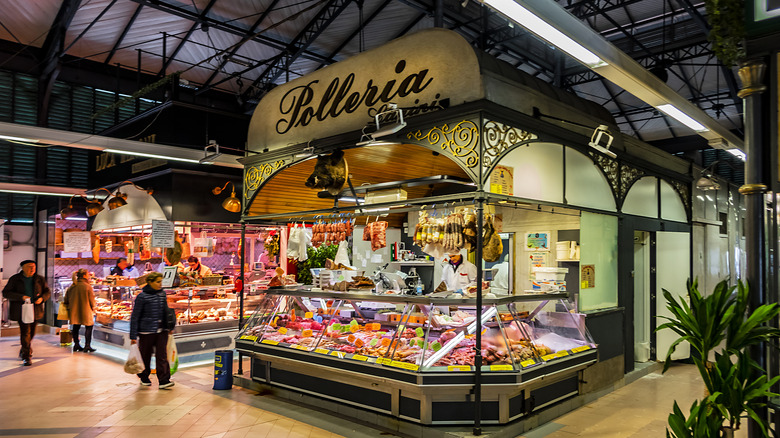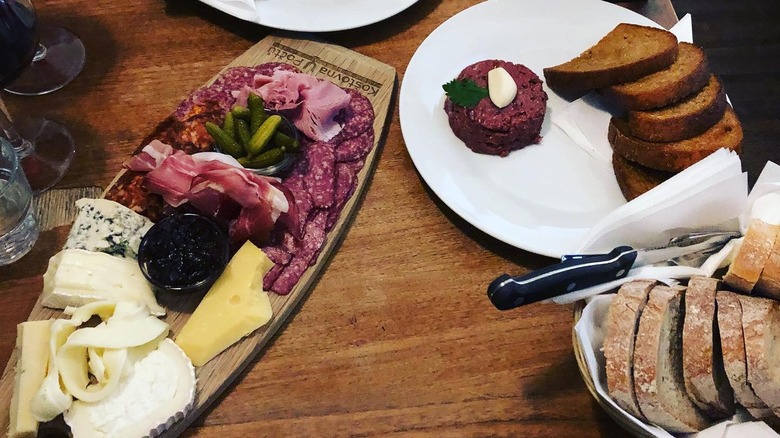Rick Steves Says This Is The One Type Of Food Tour To Avoid While In Europe
Everyone is a foodie nowadays. The term was first coined in the early 1980s, and it was once loaded with pretension – an elitist hobby for those who could afford the finest food at the hippest eateries. Fast forward four decades and there is still an element of egotism, but social media has made it far more egalitarian. Now everyone has the means to be an amateur food critic, with the likes of TikTok and Instagram buzzing with images of people's dinner. This has a knock-on effect on how restaurants present their dishes, knowing full well that whatever they serve up might be posted online for the world to critique.
Travel writers and celebrity chefs have also changed how we think about what we eat, and where. While old-school TV chefs just told us how to cook, stars like Rick Steves often share travel tips that encourage us to consider food's importance to a country's people and culture. Correspondingly, food tourism has risen significantly in recent years. Discerning travelers are no longer content to digest whatever their hotel serves up or suffer tourist-trap restaurants. They want to get out on the streets and eat like locals eat.
Food tours are a perfect way to experience delicious cuisine while receiving knowledgeable guidance and insight from a guide, but not all tours are equal. Steves has one main piece of advice on this matter: Stick to nimble food tours with fewer people.
The food tours Rick Steves avoids
Rick Steves loves to eat well when he travels, and he recognizes that dining is a great way to immerse yourself in a country's culture and live like a local. He acknowledges that the rise in food tourism has made his job easier, with many food tours costing the same as a fancy dinner (about $70-$100). For this price, not only do you get to try multiple foods at different restaurants, you also get valuable insight into the local food scene while working off a few calories between stops.
Per his website, Steves recommends avoiding "bigger, more expensive, and slower tours." He doesn't expand on this, but we can assume he means that you don't want to get stuck trawling around town with a ton of people paying over the odds in tourist-trap restaurants. The best way to avoid this is by doing your homework. Many European food tour booking sites will specify the maximum number of people. As Steves notes, a smaller group will likely mean a more dynamic experience, nipping in and out of smaller shops, boutique eateries, and local markets.
Many tours will also specify the places you will visit on the excursion, and it's worth doing your homework here, too. Is the tour in a district off the beaten path, perhaps with a good reputation as a foodie haven, or is it tourist central? If it's the latter, chances are you won't get an authentic taste of the destination.
Build your own European food tour
If you're feeling adventurous, you can pare back Rick Steves' advice about food tours even further. Never mind the "bigger, more expensive, and slower" ones: You don't need to fork out for a tour at all in order to eat like locals eat. If you tap into the right resources, you can guarantee a more authentic experience by going it alone and making your own food tour.
Where can you find reliable information? Travel websites like Tripadvisor are fine, but the results can be hit and miss. Reviews are posted by visitors from all over who might not have a broader knowledge of what a destination has to offer. Ratings can also be affected by fake reviews or outdated information such as highly-regarded restaurants that are now closed.
A better bet is seeking out expat forums and social media groups. Dining in Paris is a delight and searching "Paris expats" on Facebook yields several options. Members of such groups usually love sharing their knowledge with newcomers, so just ask a question and you're sure to get some great tips. Generally, expats won't be seen in a tourist-trap restaurant, but they will often know the harder-to-find gems where local folk love to eat. They're also usually hip to the latest buzzworthy spots or where the next food festival is going to take place. On top of that, expats will have strong opinions about where you can find the best bread, coffee, cake, beer, late-night eats, or just about anything else.


